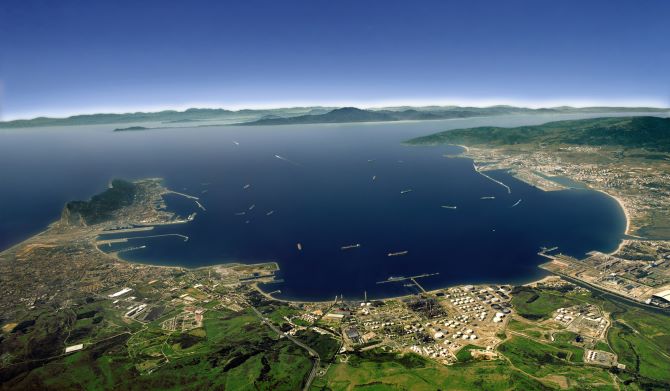Cepsa and Port of Rotterdam to create a green maritime corridor from the Mediterranean
By Julian Atchison on October 19, 2022
Algeciras — Rotterdam

Cepsa and the Port of Rotterdam will join forces to establish a green maritime corridor between southern and northern Europe. Renewable hydrogen will be produced at Cepsa’s San Roque Energy Park near the Bay of Algeciras (Spain) and exported to Rotterdam, with ammonia and methanol both listed as potential vectors. The pair expect the corridor to be operational by 2027. Cepsa also intends to establish a similar production location near its La Rábida Energy Park in Huelva.
Spain is ideally placed to become a world leader in the production and export of green hydrogen, given its strategic location, abundant generation of renewable energies, and its robust energy infrastructures and key ports, such as Algeciras and Huelva.
Cepsa CEO Maarten Wetselaar in his organisation’s official press release, 11 Oct 2022
Southern Spain with its abundant space, sun, wind and ports is a logical location to produce green hydrogen for both local use and export. Setting up this trade lane between Algeciras and Rotterdam is a substantial contribution to Europe’s ambition to reduce CO2-emissions as well as increase Europe’s energy independency and stimulate our economies.
Port of Rotterdam Authority CEO Allard Castelein in Cepsa’s official press release, 11 Oct 2022
Rotterdam — Gothenburg?
This week the Port of Rotterdam also announced they will work with the Port of Gothenburg to develop a cooperation framework for a potential green maritime corridor between the Netherlands and Sweden. This particular initiative may be methanol-focused: since 2015 the Port of Gothenburg has been bunkering methanol on a small scale for RoPax ferries.